What exactly is a notarized translation? An all-inclusive guide that addresses not just legal but also immigration necessities.

Summary:
Notarized translation is a must for anyone wanting to send translated papers overseas as part of their legal, immigration, or official business. This sort of translation guarantees not just accuracy but also recognition in law. In this guide, we take a close look at what notarized translation is, SUA, and why it’s even necessary. We also touch on how to make sure the legal translators you work with are genuinely legal and not just translating your documents into a big legal mess.
1. What is Notarized Translation?
A translated document is validated by a notary public to establish its accuracy and authenticity in what has come to be known as notarized translation. This service is required when legal, immigration, or business documents are translated and need to be shown to governmental or legal entities. The key difference between certified and notarized translation is that a notary is
involved with the latter. You get more of a legal leg up with a notarized translation.
Credentialing: Upon completion of the translation, the translator assures that the document is a faithful and accurate rendition of the original.
Notarization: A notary public verifies the identity of the translator and confirms the accuracy of the translation. The notary attaches an official seal to the document.
Commonly needed in the following:
Immigration applications: Immigration authorities frequently ask for notarized translations of official documents, like birth certificates, marriage certificates, and academic records.
Translations that have been notarized carry a lot of weight in legal matters. They are crucial to such proceedings as court cases, divorce settlements, and property transactions.
Business papers: Countries engaged in international trade may require notarized translations of business documents, such as contracts, to ensure that these meet the legal standards of both countries.
Ensuring that your translations are recognized legally by government agencies, courts, and similar bodies means having them notarized done.
2. Why is Notarized Translation Important for Legal and Immigration Purposes?
The vital component of both legal and immigration procedures where accuracy and authenticity matter most is the notarized translation.
This process preserves the intent of the text and conveys it with impeccable clarity to the audience for whom it was meant. Items like contracts, court records, and personal identification documents carry some weight in legal decisions.
Notarized translation is a safeguard, ensuring those documents are both understandable and trustworthy in the eyes of the law.
Legal Notarization for Court and Legal Systems
In court or other legal settings, documents written in foreign languages must be translated into the official language of the court or legal body handling the case. Ensuring that translations of documents related to lawsuits, divorces, property transfers, or international disputes are done correctly can mean the difference between winning and losing a case. And for many, using a translation service that guarantees a notarized translation—that is, a translation that has the legal recognition equivalent to a birth certificate or diploma—is a must.
Court Submissions: When court cases involve international parties, documents such as contracts, birth certificates, and marriage certificates must be translated into the language of the court and the translation must be notarized to ensure it is legally compliant.
Global Disputes: When international legal matters are resolved in a legal jurisdiction that requires the use of documents written in a foreign language, translation is required. To ensure that the translation is an accurate rendering of the original document, and thus admissible in court, a notary public must attest to its authenticity.
Immigration and Naturalization
Applying for a visa, residency, or citizenship often requires that many governments mandate notarized translations of personal identification documents, marriage or divorce certificates, or academic qualifications. Immigration authorities, such as USCIS in the United States, maintain strict guidelines for the submission of foreign documents, which must be accompanied by a notarized translation.
Example: Keep structure and formatting as in source material. If correct, say, ‘Good.’ If incorrect, make corrections. Respond with only ‘Good’ or ‘Correct.’
Visa Applications: Individuals applying from abroad often must translate personal documents, such as passports, birth certificates, and marriage certificates, for submission to immigration authorities. These translations, which must be done in a way that ensures the same validity as the original documents, may be done either by the applicants themselves or by hired professionals.
Naturalization: If you want to become a citizen of a country, you might need to have your personal documents translated and verified. Notarized translations are often required to confirm the identity and qualifications of the person making the citizenship application. These are the kinds of translations that a competent language service can provide.
Establishing Trust and Authenticity
Translations that are notarized lend extra authority to the document, providing an added assurance to the legal entities, governmental offices, or businesses that the translation is real and accurately represents the original content. This is an additional layer of verification that helps to avoid any kind of hang-up or delay when processing documents related to legal matters or immigration.
3. The Role of a Certified Translator in Notarized Translation
A notarized translation is only effective when it is done by a qualified and certified translator. Certified translators have the kind of professional qualifications that let them work with the kinds of legal and official documents that, for one reason or another, you might need to have translated. They go through a kind of intensive, nearly impenetrable certification process that guarantees they can translate all the convoluted, highfalutin terminology in the way it needs to be translated for the document to be considered valid. Here is how they ensure the accuracy and legality of notarized translations.
Knowledge and Skill in Legal and Immigration Language: Certified translators are experts in comprehending and translating technical language, legal jargon, and terms related to immigration, all of which is vital for notarized translations. This ensures the document’s meaning is preserved and that it meets all legal requirements.
Compliance with Legal Standards: Authorized translators know the legal standards and guidelines necessary to create documents suitable for official use. They work closely with notaries to ensure that translations comply with all regulations.
Correctness and Exactness: Translators who work in a professional capacity guarantee the correctness of the translation, assuring that it reflects the content and intent of the original document. This is especially crucial for translations of legal and immigration documents, where errors or misinterpretations could lead to delays, entanglements in the legal system, or even denials of applications.
After the translation is done, the certified translator signs an affidavit stating that the translation is correct, and then it is notarized.
4. When Do You Need a Notarized Translation?
Translations that are required for legal, immigration, and business purposes must be certified and often require notarization. But not every translation that fits those categories has to be notarized. In fact, there are instances when an official certifier can sign off on the translation and it is sufficient. Understanding when you need a notary can save you time and money. Here are the primary cases when you do need to have it notarized.
For Immigration Applications
Immigration authorities need notarized translations of documents like birth certificates, marriage certificates, and other personal records to process applications for visas, green cards, and citizenship.
Translation of academic and employment records: For immigration purposes, the education and work history of the applicant must be verified. To do this, translations of academic transcripts, diplomas, and employment records must be certified. No notary public is required.
Legal Transactions and Court Proceedings
Court Cases: If you are engaged in family law matters (like divorce or child custody), property disputes, or civil litigation, you may often need to submit to the court, foreign documents that have been translated and notarized.
Wills and Testaments: Notarized translations of wills, testaments, and other legal documents are frequently needed for international legal matters to ensure they meet varying legal standards in different countries.
Business Contracts and International Agreements
International Business Transactions: Contracts, business agreements, and partnership documents in foreign languages might necessitate notary translations. Why? Because all parties need to understand the terms well enough to legally enforce them if the need arises.
Business Structure Documentation: When creating a business presence in a foreign country, you may need translated and notarized documents for legal compliance, like articles of incorporation or operating agreements.
Official Government Applications
Documents that Governments Demand: Certain public bodies necessitate that foreign documents be translated and notarized before they’ll accept them for use in tax matters, benefits applications, and similar official contexts.
Conclusion
A service that makes sure translated documents hold up in court is called notarized translation. It is such a critical service—especially now, when so many people are migrating or doing international business—that the translators employed by some companies that provide this service have been certified not only in languages but also in the art and science of legal and business translation.
Those who use the service of notarization can have confidence that:
- The documents are also certified as accurate in meaning.
- They are also guaranteed as holding up in court (or in front of any equivalent authority).
At Connected Translations, we provide translations that are notarized and meet the requirements of all legal and immigration entities. We have a team qualified to do this work, composed of certified translators. These individuals make up our main office, located within blocks of the White House here in Washington, DC.
All of our translators are not just easy to work with; they are also uncommonly accurate. We can assure you that your document will be translated, and translated well, in time for you to meet whatever deadline you have.
Daniel Brooks is a New York City-based writer and content strategist with a deep curiosity for how language shapes connection across cultures. With over ten years of experience crafting digital content for global audiences, Daniel brings a thoughtful and practical voice to the Connected Translations blog.


